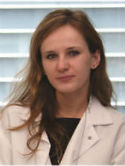| Abstract: |
Under normal conditions, heat shock proteins work in unison through dynamic protein interactions collectively referred to as the “chaperome.” Recent work revealed that during cellular stress, the functional interactions of the chaperome are modified to form the “epichaperome,” which results in improper protein folding, degradation, aggregation, and transport. This study is the first to investigate this novel mechanism of protein dishomeostasis in traumatic brain injury (TBI). Male and female adult, Sprague-Dawley rats received a lateral controlled cortical impact (CCI) and the ipsilateral hippocampus was collected 24 h 1, 2, and 4 weeks after injury. The epichaperome complex was visualized by measuring HSP90, HSC70 and HOP expression in native-PAGE and normalized to monomeric protein expression. A two-way ANOVA examined the effect of injury and sex at each time-point. Native HSP90, HSC70 and HOP protein expression showed a significant effect of injury effect across all time-points. Additionally, HSC70 and HOP showed significant sex effects at 24 h and 4 weeks. Altogether, controlled cortical impact significantly increased formation of the epichaperome across all proteins measured. Further investigation of this pathological mechanism can lead to a greater understanding of the link between TBI and increased risk of neurodegenerative disease and targeting the epichaperome for therapeutics. © 2023 |





